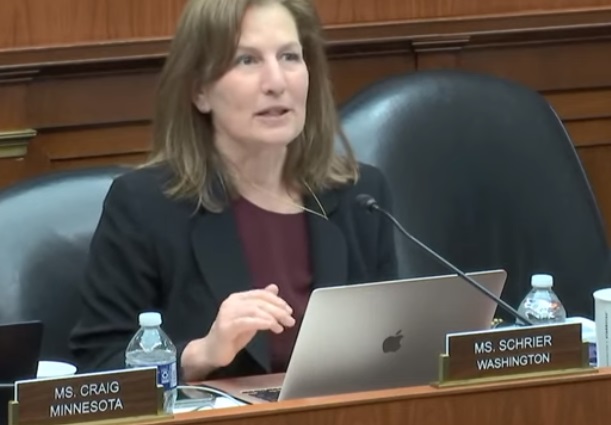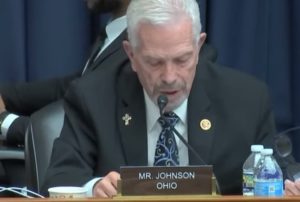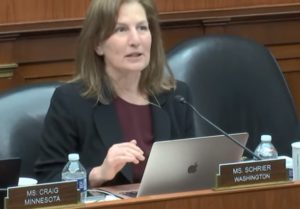
WASHINGTON, DC – U.S. Representatives Kim Schrier, M.D. (WA-08) and Bill Johnson (OH-06) recently introduced legislation that would help improve access to emergency services for remote and underserved areas, as well as regions experiencing outages caused by natural disasters. The bipartisan Advanced, Local Emergency Response Telecommunications (ALERT) Parity Act passed out of the House Energy and Commerce Committee unanimously and is headed to the House floor.
“The 8th district is nearly 10,000 square miles, with many of my constituents living in rural areas without reliable access to emergency services. Dependable connection to emergency services can be the difference in life-or-death situations,” Schrier says.
“As a doctor I know that how crucial time is in medical emergencies,” Schrier says. “This bill gives the FCC the flexibility it needs to keep up with innovation and ensures satellite communications have the regulatory certainty they need to provide service in emergency situations. I was glad to receive such strong support from my colleagues on Committee because the ALERT Parity Act will save lives by providing rural communities with this crucial resource and the peace of mind that comes with knowing they can call 911,” Schrier adds.
Johnson explains the bill.
The ALERT Act requires the FFCC to adopt rules for satellite communications providers who want to deliver emergency connectivity service in remote and rural areas and those areas where communications infrastructure has been damaged or destroyed. Under the Act, the FCC will provide satellite communications providers with the necessary certainty to provide consumers with access to emergency services where and when it is otherwise unavailable.
“The ALERT Parity Act would ensure every American, regardless of their location, would be able to receive critical emergency alerts and make 911 calls. This lifesaving legislation would enable access to emergency services for areas that would otherwise not have access to cellular services – especially in rural areas like Appalachia Ohio where I represent. I am proud to have worked with Rep. Kim Schrier to introduce this important legislation in the House of Representatives. It is critical that Congress address the challenges Americans living in technologically underserved areas face when it comes to cellular connectivity,” Johnson says.
Rep. Schrier’s remarks during the meeting can be found here.



